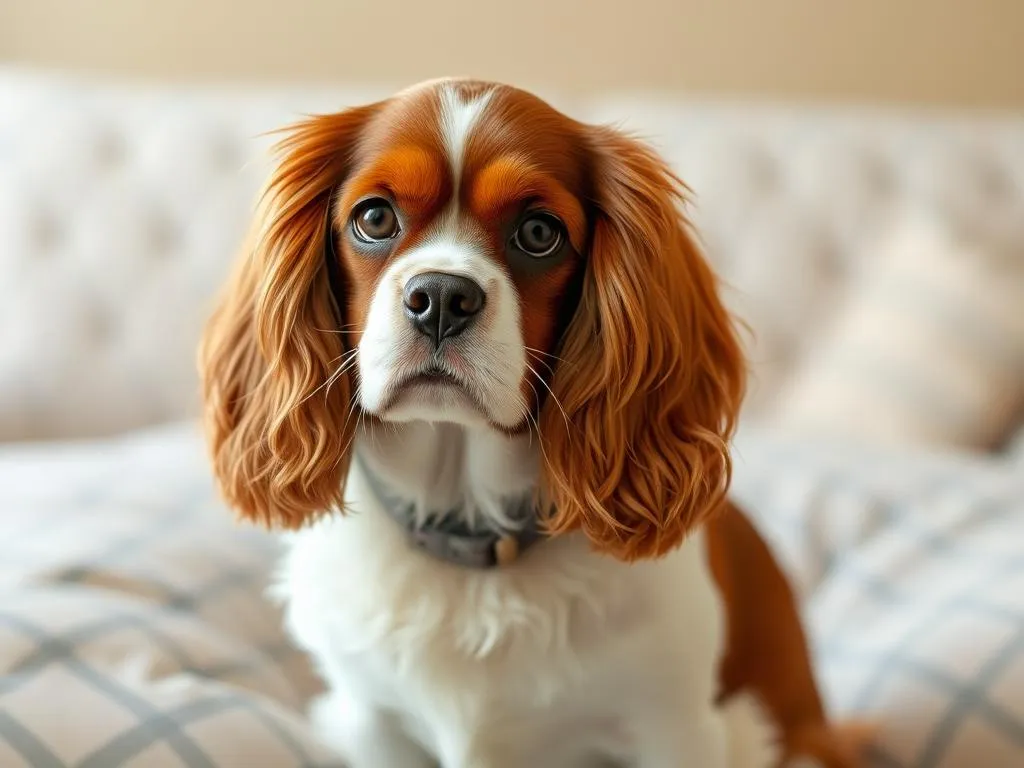
The Cavalier King Charles Spaniel is a beloved breed known for its affectionate nature and elegant appearance. Often seen as the epitome of companion dogs, they have captured the hearts of many dog lovers around the world. However, for those who suffer from allergies, finding a suitable dog can be a challenge. This brings us to the term “hypoallergenic,” which is crucial for potential dog owners with sensitivities.
Understanding whether a breed is hypoallergenic is essential for making informed decisions, especially for allergy sufferers. In this article, we will explore the unique characteristics of the Cavalier King Charles Spaniel and investigate whether they fit into the hypoallergenic category.
Understanding Hypoallergenic Dogs
What Does Hypoallergenic Mean?
The term hypoallergenic refers to substances that are less likely to cause allergic reactions. When it comes to dogs, this term suggests that certain breeds produce fewer allergens—such as dander, saliva, or urine—than others. However, it is important to note that no dog is completely free of allergens, and individual reactions can vary widely from person to person.
Common misconceptions about hypoallergenic dogs often lead potential owners to believe that these breeds are entirely safe for allergy sufferers. In reality, while they may produce fewer allergens, some individuals may still experience allergic reactions.
How Allergies to Dogs Work
Dog allergies primarily stem from proteins found in dog saliva, skin (dander), and urine. When a dog licks itself, these proteins can become airborne and settle on surfaces, triggering allergic reactions in sensitive individuals. The most common symptoms include sneezing, nasal congestion, itchy eyes, and skin irritations.
Understanding how these allergens work is crucial for managing allergies effectively. For those with sensitivities, selecting a breed that produces lower levels of these allergens can significantly enhance their quality of life.
Breeds Often Considered Hypoallergenic
Several breeds are frequently labeled as hypoallergenic due to their lower levels of shedding and dander. Some of these breeds include:
- Poodle (Toy, Miniature, and Standard)
- Bichon Frise
- Schnauzer (Miniature, Standard, and Giant)
- Shih Tzu
- Maltese
These breeds typically have hair instead of fur, which reduces dander and shedding. Their grooming requirements often involve regular brushing to prevent matting and to control allergens.
Overview of the Cavalier King Charles Spaniel
Breed History and Characteristics
The Cavalier King Charles Spaniel has a rich history that dates back to the 16th century, where they were treasured companions of royalty. Named after King Charles II of England, these dogs were bred for their charming looks and affectionate nature.
Physically, Cavaliers are small dogs, usually weighing between 13 to 18 pounds and standing about 12 to 13 inches tall at the shoulder. They have long, silky, and wavy coats that come in various color combinations, including Blenheim (chestnut and white), tricolor (black, white, and tan), ruby (solid red), and black and tan.
Temperament and Behavior
Cavaliers are known for their friendly and sociable temperament. They are affectionate, gentle, and eager to please, making them excellent family pets. Their compatibility with children and other pets is a significant advantage for families looking for a well-rounded companion.
Despite their small size, Cavaliers possess a playful and spirited nature, which can make them a delight to have around. Their desire for human interaction often leads them to be affectionate lap dogs, enjoying cuddles and playtime alike.
Are Cavalier King Charles Spaniels Hypoallergenic?
Shedding and Grooming Needs
When considering whether the Cavalier King Charles Spaniel is hypoallergenic, it’s essential to examine their shedding patterns. Cavaliers have a medium-length coat that sheds moderately throughout the year, with increased shedding during seasonal changes. Unlike some breeds that are known for minimal shedding, Cavaliers will require grooming to manage their coat and reduce dander.
Regular grooming is crucial for Cavaliers, as it helps to minimize loose hair and dander in the home. Brushing them a few times a week can help keep their coat healthy while reducing allergens.
Allergen Production in Cavaliers
When examining allergen production in Cavaliers, it becomes clear that they do produce dander and saliva like all dogs. However, the extent of allergen production can vary among individual dogs. The silky coat of the Cavalier may also trap some dander, keeping it from becoming airborne as easily as in breeds with shorter hair.
While Cavaliers are not classified as hypoallergenic, they may be a better option for some allergy sufferers compared to high-shedding breeds. It is essential for potential owners to spend time with the breed before making a decision, as individual allergies can differ.
Expert Opinions and Studies
Insights from veterinarians and dog breeders suggest that while Cavalier King Charles Spaniels are not hypoallergenic, they may be suitable for people with mild allergies. Experts often recommend that allergy sufferers interact with the breed to assess their reactions before bringing a Cavalier into their home.
Some studies have indicated that individual variations in dog allergens can significantly influence how allergic reactions manifest. Therefore, it is advisable for potential owners to consider their sensitivities and consult with professionals about their options.
Managing Allergies with Cavalier King Charles Spaniels
Tips for Allergy Sufferers
For those who still wish to adopt a Cavalier despite allergies, there are several strategies to help reduce allergens in the home:
- Regular Grooming: Frequent brushing can help eliminate loose hair and dander.
- Bathing: Regular baths (every 4-6 weeks) can help reduce dander buildup.
- Cleaning: Vacuuming carpets and upholstery frequently can minimize allergen accumulation.
- Air Purifiers: Utilizing HEPA air purifiers can help capture airborne allergens.
Implementing these tips can create a more comfortable environment for allergy sufferers living with a Cavalier.
Lifestyle Adjustments
In addition to grooming, making lifestyle adjustments can further assist in managing allergies:
- Designate Dog-Free Zones: Keeping certain areas, like bedrooms, free from pets can help minimize exposure.
- Daily Cleaning Routines: Establishing a cleaning schedule can help keep allergens at bay.
- Wash Bedding and Fabrics: Regularly washing pet bedding, blankets, and any fabric the dog frequently contacts can reduce allergens.
These adjustments can significantly aid in creating a more allergy-friendly living space.
Alternatives and Considerations
If allergies are a significant concern, potential dog owners might consider alternative breeds that are more commonly recognized as hypoallergenic. Some breeds that may be more suitable for allergy sufferers include Poodles, Bichon Frises, or Maltese.
Mix breeds, such as Cavapoo (Cavalier and Poodle mix), are also gaining popularity and may inherit hypoallergenic traits from their Poodle parent. Additionally, adopting a rescue dog may provide an opportunity to find a breed or mix that aligns better with allergy needs.
Conclusion
In summary, while Cavalier King Charles Spaniels are not classified as hypoallergenic, they may still be a viable option for those with mild allergies. Their moderate shedding and grooming needs can be managed with regular care, allowing allergy sufferers to enjoy the companionship of this affectionate breed.
Before making a decision, it’s crucial for potential owners to spend time with Cavaliers to gauge their individual reactions. Each dog is unique, and understanding one’s sensitivities will lead to a more fulfilling companionship.
FAQs
Are Cavalier King Charles Spaniels good for first-time dog owners?
Yes, Cavaliers are known for their friendly and adaptable nature, making them excellent companions for first-time dog owners.
What are common health issues in Cavalier King Charles Spaniels?
Cavaliers can be prone to certain health issues, including mitral valve disease, hip dysplasia, and eye conditions. Regular veterinary check-ups are essential.
How much exercise do Cavalier King Charles Spaniels need?
Cavaliers require moderate exercise, typically around 30 minutes to an hour of activity each day, including walks and playtime.
Can you train a Cavalier King Charles Spaniel easily?
Yes, Cavaliers are intelligent and eager to please, which makes them relatively easy to train with positive reinforcement methods.
What is the average lifespan of a Cavalier King Charles Spaniel?
The average lifespan of a Cavalier King Charles Spaniel is around 12 to 15 years, depending on health and care.
By understanding the unique characteristics of the Cavalier King Charles Spaniel and their potential impact on allergies, you can make an informed decision that suits both your lifestyle and health considerations.









